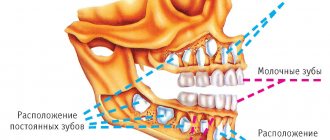Every person goes through age-related crises in his life. Since children develop quickly, their crises are more vivid and noticeable. The crisis of three years in a child is considered one of the most intense during the period of growth. Until recently, the baby was calm and affectionate, listened to adults and followed the established rules. And now he begins to protest against the previous way of life, try to separate from his parents, and defend his rights to independent existence. He is mischievous, screams, cries if something doesn’t work out or something is denied.
The main advice for parents is to remain balanced when communicating with the baby, and then after the end of this difficult period the baby will also become calmer, independent and reasonable.
What is the three-year-old crisis?
The three-year crisis in children is a period of life in which they acquire a huge number of new personal formations. The baby psychologically separates from his mother, strives for independence, and reaches a new level of communication with adults and peers. He wants to be “like big,” but he can’t do much yet due to his age. As a result of this dissonance, the child develops hysterics, resentment, and “deteriorates” in behavior. In short, the crisis of three years is a period of rapid development.
Causes of child crisis 3 years
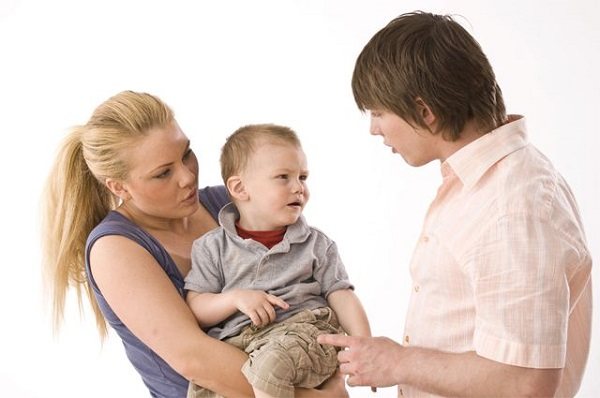
According to the theory of L.S. Vygotsky, a child’s growing up is an alternation of stable and crisis periods of mental development. In stable periods, the child develops slowly and linearly, in periods of crisis - rapidly and spasmodically. One of the main causes of the crisis is the child’s conflict with the outside world. He wants to do everything on his own, but he is prevented from doing this by circumstances that he cannot influence, for example, adult prohibitions and an insufficient level of knowledge and skills.
Factors influencing the intensity of crisis manifestations:
- Type of nervous activity. Children with a weak or unstable type - melancholic and choleric - are more likely than others to throw tantrums, be capricious and protest against the rules during a crisis. Phlegmatic and sanguine people have an easier attitude towards obstacles in their lives and usually behave a little more calmly.
- Authoritarian parenting style in the family. If parents constantly suppress the child’s impulses for independence, then he resists this more than if this does not happen.
- Anxious type of parenting and overprotection. In such a family, the child’s independence is also suppressed, only for other reasons: the parents consider him a very small child who cannot do anything on his own. Protests and hysterics in this case are inevitable.
- Tensions in the family. If conflicts often occur between parents, then the child unconsciously tries to attract attention to himself. He practically fails to do this, so the crisis of three years manifests itself more intensely.
- Health status. Children with mental and neurological developmental disabilities experience an age-related crisis much more acutely than their healthy peers.
How does the 3 year crisis manifest itself?

External signs of a 3-year-old crisis are usually noticed by parents: the child becomes capricious, argues, stops listening, and may throw a tantrum in the street because of some little thing. Psychologists L.S. Vygotsky and A.A. Leontyev identified 7 main symptoms of a crisis in a child’s 3rd year. In each child they can manifest themselves to varying degrees and in different situations.
Negativism

This is the name of the symptom, which consists in the child’s refusal to do as the adult said. Moreover, refusal to fulfill a request often does not even correspond to the child’s own desires. For example, a mother invites the baby to go for a walk, but he refuses only because it is an adult’s initiative. An interesting feature is that if the parent decides to say “well, okay, then we won’t go for a walk today,” then the child will most likely quickly change his mind and decide that he still wants to go outside. That is, he will again do something different from what the adult said.
Obstinacy
The child refuses to continue following the usual daily routine. For example, if after waking up he always went to brush his teeth and wash his face, and then have breakfast, then in a crisis period he can begin to win his right to first eat, and then go for hygiene procedures.
Stubbornness
The child, who is in a three-year-old crisis, makes his decisions and is not going to cancel them. For example, if he said that he will not tidy up the toys, he will not do it. Even if at the same time the mother gets angry and puts them in the trash. The child will cry, but will not change his decision: he will not clean up.
Self-will
The child tries to do everything on his own, but does not listen to adults who are trying to help him. If a baby fastens his buttons and allows his mother to show him how to do it correctly, then this is simply a desire for independence. When he pushes mother’s hands away, doesn’t let her say or show anything, cries and shouts “I do it myself,” but does everything wrong, then this is self-will.
Protest
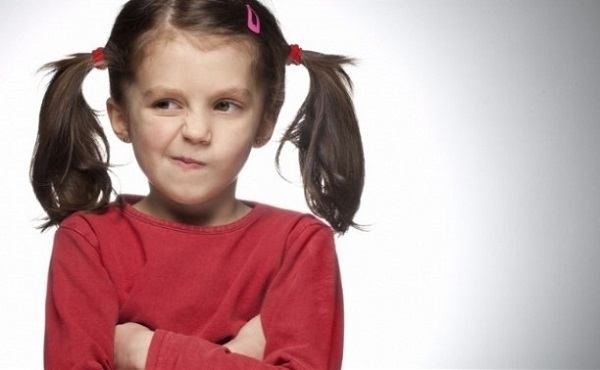
Most often it arises against the backdrop of frequent orders from parents about what a child who is in a 3-year-old crisis should do. The kid protests against adults deciding for him. For example, a child completely refuses to read a book at night if the mother chose the fairy tale herself and did not give him the choice.
Depreciation
The baby stops appreciating what he previously considered important and dear. For example, he breaks his favorite toys, tears up books. Significant adults may be devalued, and then the child may call mom and dad names, fight with older brothers and sisters, with whom he previously had excellent relationships.
Despotism
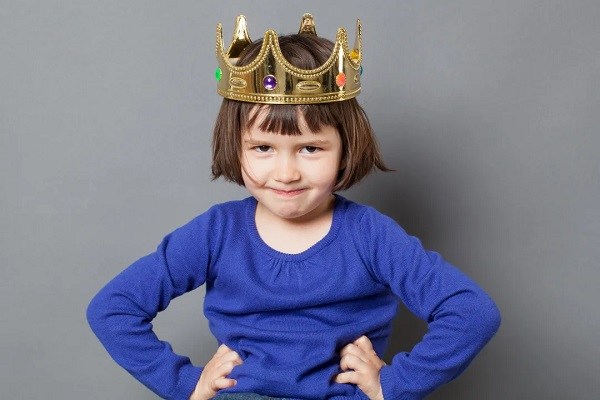
The child is trying to begin to command in the family, wants to be listened to and obeyed. For example, he can order his parents to turn on cartoons right now, despite the fact that they are busy with other things. If they don’t listen to him, then he screams and cries, stamps his feet and continues to demand.
The crisis of three years is manifested by the listed symptoms to one degree or another in every child, but not all of them are manifested so clearly for parents to notice. Sometimes the crisis of three years is limited only to stubbornness and negativism, and in some cases all seven symptoms are clearly visible.
Crisis 3 years. Recommendations for parents. article (junior group) on the topic
Crisis 3 years. Recommendations for parents.
While raising a kind and sweet baby of the third year of life, one fine day parents see that their little one is rapidly changing for the worse - this is how the first childhood age crisis of 3 years manifests itself. Most often, it passes very violently and plunges parents into panic - they are not able to cope with the small “thundercloud” that their child has turned into.
Symptoms of crisis 3 years
It is not necessary that every child has all of them, but most often all these symptoms replace each other or are present at the same time.
1. Negativism - the child contradicts himself, bringing the situation to the point of absurdity. This behavior differs from ordinary disobedience, because the child refuses to do even what he himself wanted a minute ago. The main reason for this behavior is that the instructions come from the parents, and the child does not want to obey them, because he himself is already an adult, but he does not know how to manage his adulthood and competently direct it in the right direction. Hence the constant “no” to any requests and proposals from elders.
2. Stubbornness cannot be compared with perseverance, when a child systematically moves towards a goal and achieves it. The child is stubborn because he wants to do this against the will of the parents, and the more they insist on their own, the more the baby resists.
3. Willfulness - the childhood crisis of 3 years is the desire of a small personality to be independent, no matter what. The child does only what he himself considers necessary and this “Himself” is manifested in all his actions, even when the baby clearly cannot cope without the help of adults.
4. Protest - the child protests against everything that his parents are trying to instill in him, the educational process begins to slow down, because the child does not want to hear reasonable arguments. A consultation with a child psychologist during a 3-year-old crisis can help adults understand how to behave with a little rebel.
5. Jealousy - this is how a child’s sudden maturity manifests itself when he is not alone in the family. He wants to subjugate the children to his will, like his parents, but he shows this through his jealous attitude towards them.
6. Despotism - during a crisis of 3 years, a psychologist can give recommendations to parents on how to behave with a domestic “tyrant” who considers himself the center of the universe and wants unquestioning obedience. It is pointless to prove that you are right, but it is better to try to resolve all issues peacefully.
Advice from a psychologist for parents during a 3-year-old crisis
In order to survive this difficult period with minimal losses, parents, no matter how strange it may sound, must slightly obey the child. Do not fly into a rage, showing your powerlessness, do not try to achieve submission to yourself with shouts and punishments. Such actions suppress the baby’s personality, which has just begun to manifest itself. After all, the crisis of this age precisely contributes to the formation of a holistic personality. You don’t want to raise a whiner and an uninitiated executor of someone else’s will, do you? It is necessary to provide the child with maximum space to demonstrate the independence for which he so strives. Parents should protect their baby only from situations that directly threaten his health and safety. When a child sees that adults communicate with him on equal terms, listen to his opinion and allow him to independently make decisions that are important to him, the crisis will end faster and with the least losses. Parents must realize that all crisis situations are difficult for the child’s psyche, and it is also difficult for him in this situation. This condition will not last forever; usually the crisis passes in a few months, a maximum of a year. At this time, the child, more than ever, needs the support of his family and their love, even when it seems that he does not need it.
How parents should not behave during a crisis of a 3-year-old child.
- Constantly scold and punish your child for all manifestations of his independence that are unpleasant for you.
- Don't say "yes" when a firm "no" is needed
- . Do not try to smooth out the crisis by any means, remembering that as a result the child may have an increased sense of responsibility.
- Do not accustom your child to easy victories, giving him a reason for self-praise: then any defeat will become a tragedy for him. And at the same time, not emphasizing your strength and superiority over him, opposing him in everything, this will lead either to indifference in everything, or to various types of veiled revenge on the sly.
- Remember: we consider and evaluate everything that happens to a child from the position of an adult, without understanding much.
- Most parents are afraid of the crisis only because they have no one to compare their baby with.
- For the crisis to pass safely, love your child.
Result of the crisis
The 3-year crisis in psychology is an important period in the development of a child’s personality. When it ends, the psyche reaches a new level of development. According to the theory of L.S. Vygotsky and A.A. Leontiev, the following areas of a child’s life change:
- Leading activity is an activity within which other forms of activity appear and differentiate, private mental processes are restructured and personal new formations arise. After the crisis, the child begins to develop a completely new leading activity - role-playing game, in which he begins to explore the world of relationships between people.
- The social situation of development is a system of social conditions that influence the internal development of the child. After a crisis, the child’s communication with peers gradually comes to the fore, and the adult becomes a role model in role-playing games.
- Personal new formations arise. After the three-year crisis, the child develops self-awareness, pride in his achievements, and independence.
Despite the fact that the 3-year-old crisis causes a lot of trouble for parents, it is a mandatory stage in a child’s development. Having overcome it, the child becomes different: independent, conscious, reasonable, begins to understand and be able to do more. Without personal crises, the child would not be able to separate from his mother in time, realize himself and understand what he is capable of, what he wants and what he can do, and what remains to be learned.
Recommendations of an educational psychologist for parents “Crisis of 3 years”
Doroginina Alena
Recommendations of an educational psychologist for parents “Crisis of 3 years”
Recommendations from an educational psychologist.
Crisis 3 years.
So the night colic and motion sickness on the arms are over, the child has learned to walk independently and deftly put a spoon in his mouth, you can already talk to him on various topics and sit more or less calmly in a cafe or ride the bus. Yesterday's baby has grown up, and it would seem that parents can take a breath . But then it comes - the crisis of 3 years .
Just yesterday, a kind and flexible child suddenly turns into a completely different one, screaming and crying, who has one answer to everything - no! Constant hysterics, rolling on the floor, refusal to fulfill the simplest requirements, attempts to do everything on your own, and then scream again - it doesn’t work! This behavior drives parents crazy and raises only one question: what to do?
crisis is a temporary and passing phenomenon. Having figured out how crisis itself and what causes it, parents will be able to survive this period with minimal losses for their psyche, and at the same time help their child overcome the 3-year-old crisis . Negativism and stubbornness on the part of a child is not a desire to annoy parents , but a lack of understanding of what is happening and how to behave at a new stage in life.
Crisis 3 years : symptoms
In the behavior of preschool children you can often see signs of a 3-year-old crisis . If your child is suddenly completely out of touch, remember his age. crisis will not necessarily visit the child directly on his third birthday. The period of denial and stubbornness can begin six months before the third birthday or six months later.
You are faced with a 3-year-old crisis if your child:
• constantly checks the boundaries of what is permitted;
• throws tantrums for any reason or without;
• demands to buy the toy he needs, crying and rolling on the floor in the store;
• during a walk he runs away in the opposite direction from you;
• does not respond to requests and the word “no”
;
• perceives any of your proposals negatively;
• answers “no”
,
"I do not want
and
I will not"
;
• tries to do everything independently and in his own way: he puts on his jacket, sits down to eat, if something doesn’t work out, he throws a tantrum;
• cannot be persuaded.
Causes of the 3 year crisis
At the age of three, the child tries to separate his “I”
from
parent . He begins to realize himself as a separate independent person with his own desires that need to be defended. The child crisis of 3 years often manifests itself in the child’s demonstrative and even tyrannical behavior: he throws tantrums out of nowhere and does not agree with literally anything. It’s as if the child specifically wants to do it out of spite, on the contrary, contrary to the wishes of the parents . Of course, this behavior causes bewilderment and irritation in parents , but you should remember that the child is stubborn and says “no”
not to annoy you.
He simply does not know other ways to establish himself as a person. Parents should show the child how to survive a 3-year-old crisis .
3 year crisis : recommendations for parents
“Don’t try to remake a child, raise him and break him” for yourself
If a 3-year-old child has a crisis , advice to parents boils down , by and large, to recommendations to maintain a balance . You should not punish your child or encourage his behavior. During a tantrum, try to switch the stubborn person’s attention to something else, and if that doesn’t work, just wait it out. But when the child calms down, be sure to talk to him about what happened, explain that you still love him, but this behavior really upset you and it is unacceptable in society.
- Give your child a choice
Does the child want to be independent? Allow him to make his own decisions. Don’t force them to eat porridge and a sandwich, ask: “Will you have porridge or a sandwich?”
If you are going on errands, give your child the opportunity to participate in determining the route:
“Shall we go to the store or the pharmacy first?”
Sometimes you can play on a contradiction: if you urgently need to get your child ready for kindergarten, and he refuses to get dressed, say that you won’t go to kindergarten today. The child, out of stubbornness, will start shouting: “No, let’s go!”
Take advantage of this, but emphasize that today you fulfill his request, and tomorrow he will fulfill yours.
— Help your child accept himself
The child must believe that he is good, despite temporary difficulties with behavior. Praise your child if he has followed your instructions, emphasize that he is obedient and is doing great.
— Contact specialists
If you cannot cope with the situation, become irritable, aggressive, or, conversely, give up, the science of psychology will help you. The 3-year-old crisis is a topic on which many child psychologists specialize, who will tell you how to behave correctly, where to get calm and strength, and will also work with the child himself.
3 year crisis : when does it end?
It is impossible to predict how long your child will be stubborn - a month or a year. Some children “slip through”
the crisis age without even noticing, others linger in it for a long time. How long the crisis lasts for 3 years will also depend on the attitude of the parents to what is happening .
Throughout his life, a growing child will more than once encounter crises of a certain age, because the crisis of 3 years to be the starting point on the path to personality development.
crisis just needs to be waited out and overcome, like waiting out a thunderstorm or hurricane. 3-year-old crisis guide , you will help your child quickly overcome this difficult period for him and those around him.
How to survive a child's 3-year-old crisis
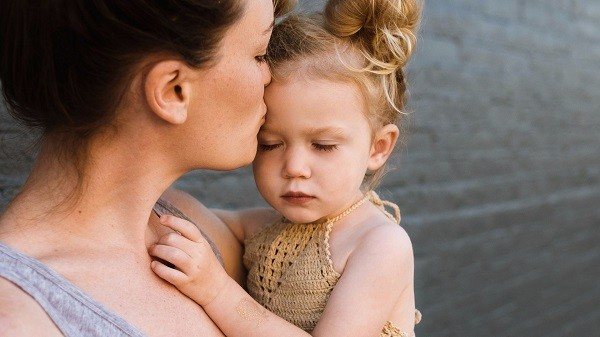
Advice to parents from a psychologist on how to behave with a three-year-old child in crisis:
- Be patient. You should not try to put pressure on the baby during a hysteria, shout at him or threaten him with punishment. These actions can have the opposite effect: the more the child perceives obstacles, the more intensely he fights them.
- Agree. For example, knowing that a child might throw a tantrum in a store, agree to buy one thing for him, and say that if he starts being capricious, then you will have to leave the store. And be sure to comply with these conditions. If everything went well, then you need to praise the baby for his worthy behavior.
- Set boundaries. The baby must clearly know what he can and cannot do. However, the ban cannot be lifted because the child cried. It's better to talk to him about what happened after he calms down. Speaking out the current situation on your own also helps the child calm down.
- Limit the use of the word “impossible.” The more a child is forbidden, the more he wants to try and check. As a result, the baby will protest and defend his rights. During a three-year crisis, it is reasonable to prohibit doing only the following:
- harms the health of the child himself;
- threatens other people or animals;
- leads to damage to truly valuable property.
- Give the child more independence. Let him check for himself: is it cold outside in winter in sandals? It will take many times less time and nerves for him to go outside and realize that he is cold than to persuade a three-year-old to put on felt boots rather than sandals.
- Be consistent. Be sure to keep your promises - both positive and negative. The baby should know: if mom said that after kindergarten there will be a walk in the yard, then it should take place; and if she said that she wouldn’t give him sweets if he didn’t eat the soup, then he really wouldn’t get any sweets. You cannot prohibit a child from doing something and then allow it a few minutes later, and vice versa.
- Name the child's feelings. This leads to his awareness of his condition. Tell him “you’re angry now because...”, “you’re offended because...”. By the end of the crisis, instead of hysterics, the child himself will learn to say “I’m upset because I couldn’t make a road for the car.”
- Relieve mental stress. Drawing, playing with sand, modeling from plasticine and dough, and playing with water are great for this.
- After a quarrel with a child, when he has already calmed down, it is imperative to restore contact with him. Hug, tell him how good and beloved he is, stroke and caress him. This is important for maintaining emotional contact with the child in the future.
Crisis of 3 years: what to do, how should parents behave?
The logical question is “What to do?” Any mother will ask herself when she sees such changes in her child.
IMPORTANT: The duration of the difficult period and the complexity of its course will depend on your behavior
- Don't turn parenting into overprotection. Such a compressed framework does not allow the child to express himself, which is why hostile relationships with others will grow in him
- There is no need to forbid everything to your child. Prohibit only what is truly dangerous: playing with matches, for example. But if a child wants to climb a slide from which he might fall, let him do it. Just be ready to catch him at this moment
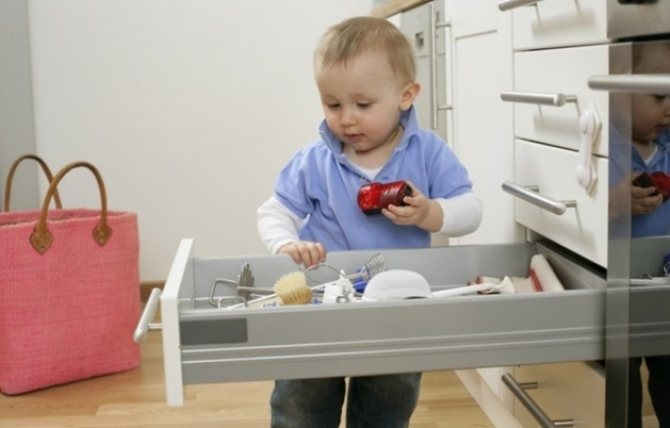
How parents should behave during a 3-year-old crisis
- Parents should raise their children equally. It is impermissible for one to allow and the other to prohibit. This will only lead to a negative attitude of the child towards the source of constant prohibitions.
- Praise your child for being interested in something and trying to be independent. Even if the child takes longer to dress on his own, there is no need to tear clothes out of his hands and take over the baton. After all, the child will simply be happy with his independence. But don’t forget about the limits: you can try if it’s safe
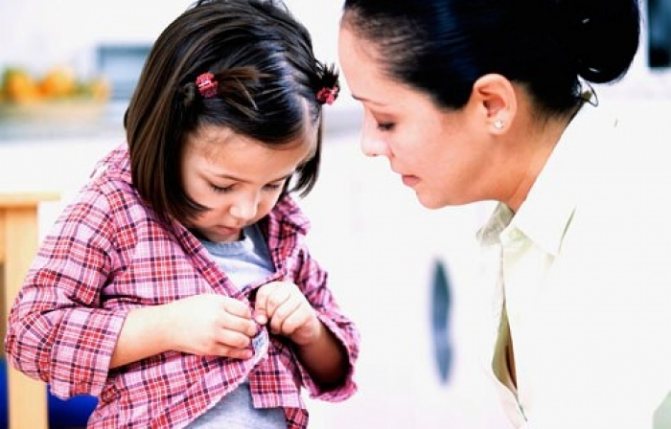
Crisis of a 3 year old child
- Teach your child that same independence
- Explanations to the child must be clear to him. Speak concisely and confidently. Long introductory sentences will confuse the child
IMPORTANT: There is no need to constantly yell at your child if he behaves badly. Just speak sternly and in a slightly raised voice
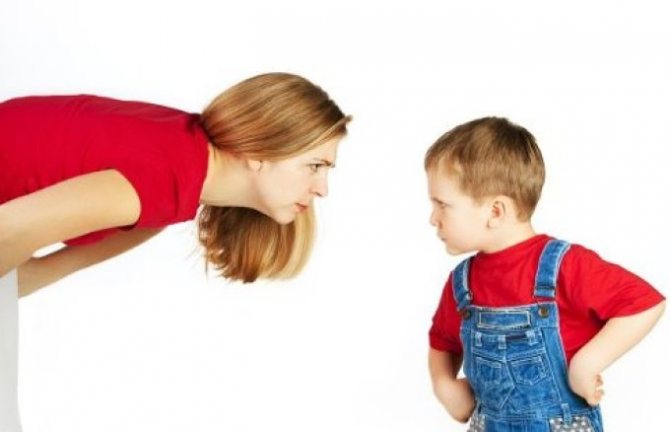
How to survive a 3 year crisis
- You should allow more than prohibit
- Give the right to choose. Don't say: “We're going for a walk!” It’s better to ask: “Are you going to walk or bike today?” The child will be pleased with the opportunity to make a decision and will not understand your cunning
- If the child is already hysterical, wait. Only when the baby calms down, calmly but confidently explain everything to him.
IMPORTANT: You must help your child get through this period. Don't leave things to chance
My experience of working with a three-year-old child during a crisis
One of the kids in kindergarten showed all the “seven stars of crisis.” His name is Bogdan, he started going to kindergarten at the age of two. In the middle of the year, the child’s mother began to tell the teachers about the child’s serious changes in behavior. He doesn’t want to go to kindergarten, although he always went with joy, he refuses to have breakfast, his favorite answer to all questions is “no.”
After some time, he began to show his condition in kindergarten: he could break his car, quarreled with his peers, and refused to nap during the day. At the same time, he wanted to perform any action himself, regardless of whether he succeeded. He did not accept help from adults.







